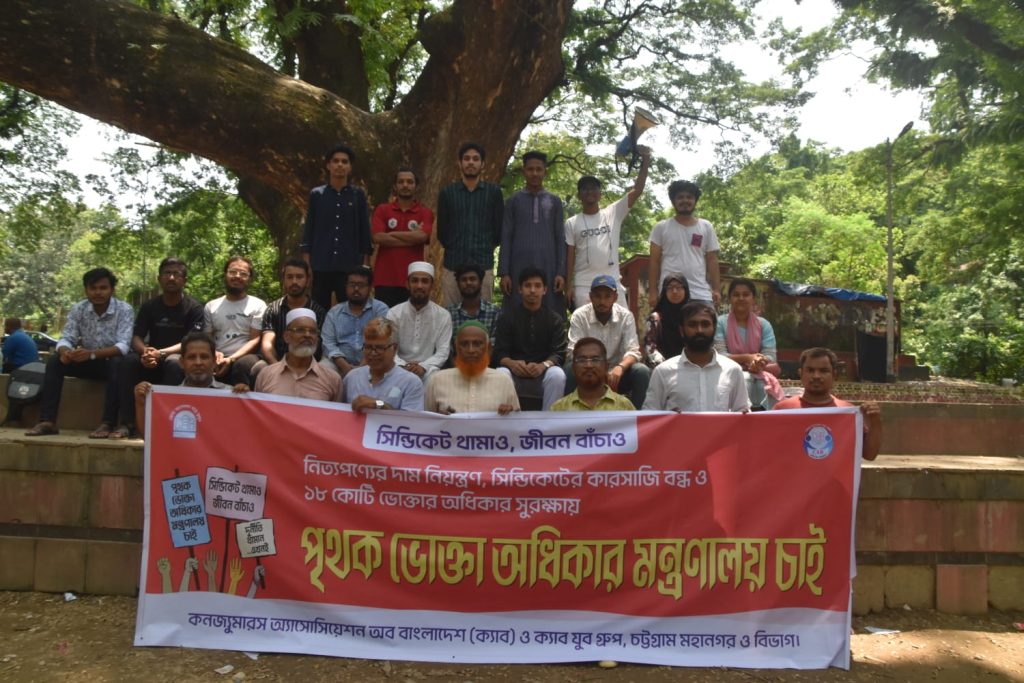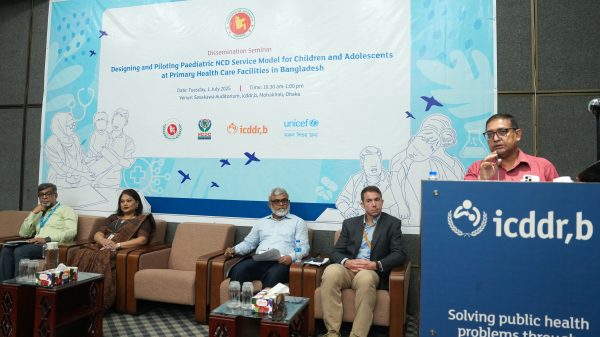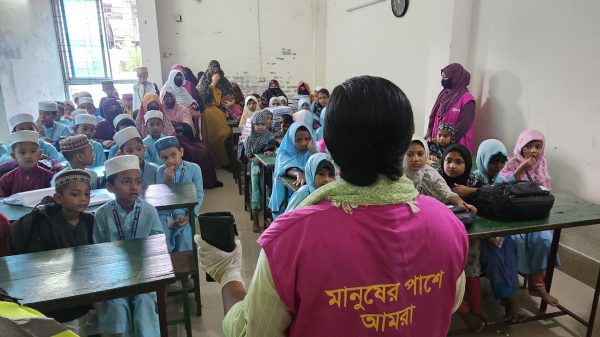Individual consumer rights ministry demands to protect the rights of 18 crore consumers

- Update Time : Wednesday, June 12, 2024

Although there are separate ministries for consumers in different countries of the world, in Bangladesh, the responsibility of taking care of consumers has been given to the Ministry of Commerce of traders. CAB, which is active all the time about the rights of 18 crore consumers of the country, has been demanding in various ways including meetings, seminars, human chains, but during the current government, the Consumer Rights Protection Act 2009, the establishment of the Consumer Directorate, the Safe Food Act 2013 and the Safe Food Authority were established. It is the need of the hour to establish a separate Ministry of Consumer Rights to provide one-stop service to consumers including BSTI, Consumer Directorate, Competition Commission, Tariff Commission and Safe Food Authority in order to prevent syndicates and unrest in the commodity market.
At present, the main role and main work of the Ministry of Commerce is to expand business and protect the interests of businessmen. It is natural for the Ministry of Commerce to be more sympathetic to businessmen, who are the driving force behind the country’s trade, industry, and import-export. If there were fair trade practices in the country, maybe the buyers and consumers, who are one of the participants in the business, would have been considered along with the traders. But in the current reality, it is not possible for the Ministry of Commerce to fulfill this responsibility and protect consumer interests in all situations. Therefore, if there is a separate ministry, it will be possible to focus the policy makers of the government to solve the problems of 18 crore consumers faster. The existing disparity between traders and consumers will also reduce to some extent. On June 11, 2024, the above demand was made in the protest rally held on the ground floor of the traditional CRB, Chittagong, on the demand of a separate consumer rights ministry.

The Deputy Attorney General of the Supreme Court and eminent human rights leader Advocate Abul Hashem, a heroic freedom fighter and environmentalist, spoke in solidarity with the protesting human chain organized by the Consumers Association of Bangladesh (CAB) Chittagong Metropolitan Division and CAB Youth Group under the direction of Russel Uddin, a member of CAB Jubo Group Chittagong City. Professor Dr. Idris Ali, Vice President of CAB Central Committee SM Najer Hossain, Joint Secretary of CAB Chittagong CAB Metropolitan Mohammad Salim Jahangir, President of CAB Pahartali Police Station Harun Ghafoor Bhuiyan, Human Rights Leader Osman Jahangir, Development Activist Syed Abul Hasan, Member of CAB Youth Group Chittagong Metropolitan Mohammad Karimul Islam, Tania Sultana, Nafisa Nabi, Ridwanul Haque, Abrarul Karim Nehal, Niloy Burman and Abhijit De Sanjeev.
Speakers at the gathering said that Indian policy makers were able to form a full-fledged Ministry of Consumer Affairs in 1947, upon the founding of the state. India was able to make the right decision at least structurally in the beginning. Because of that, it is always possible to control inflation in India.
The speakers expressed their anger and said that although the consumer society is the largest economic group in the country, there is no separate ministry to protect their interests and rights. Moreover, some initiatives have been taken through a small department under the Ministry of Commerce, which is responsible for protecting the interests of traders, but this is also very insignificant compared to the need. Again, the burden of providing rights and benefits to consumers has been given to the traders. Therefore, due to the fact that the Ministry of Commerce, which is responsible for protecting the interests of traders, is taking care of the consumer interests, the consumer interests are being neglected and misrepresented again and again. Things are a lot like “cats guarding fish”. As a result, the traders are cutting the pockets of the people by creating an artificial shortage of daily consumables in the name of free market economy, once onion, once rice, once masala, once oil. The Ministry of Commerce does not have the time to determine the annual demand of the country’s consumers for daily necessities, investigate the obstacles in production, supply, marketing, and protect the interests of the consumers.








Leave a Reply